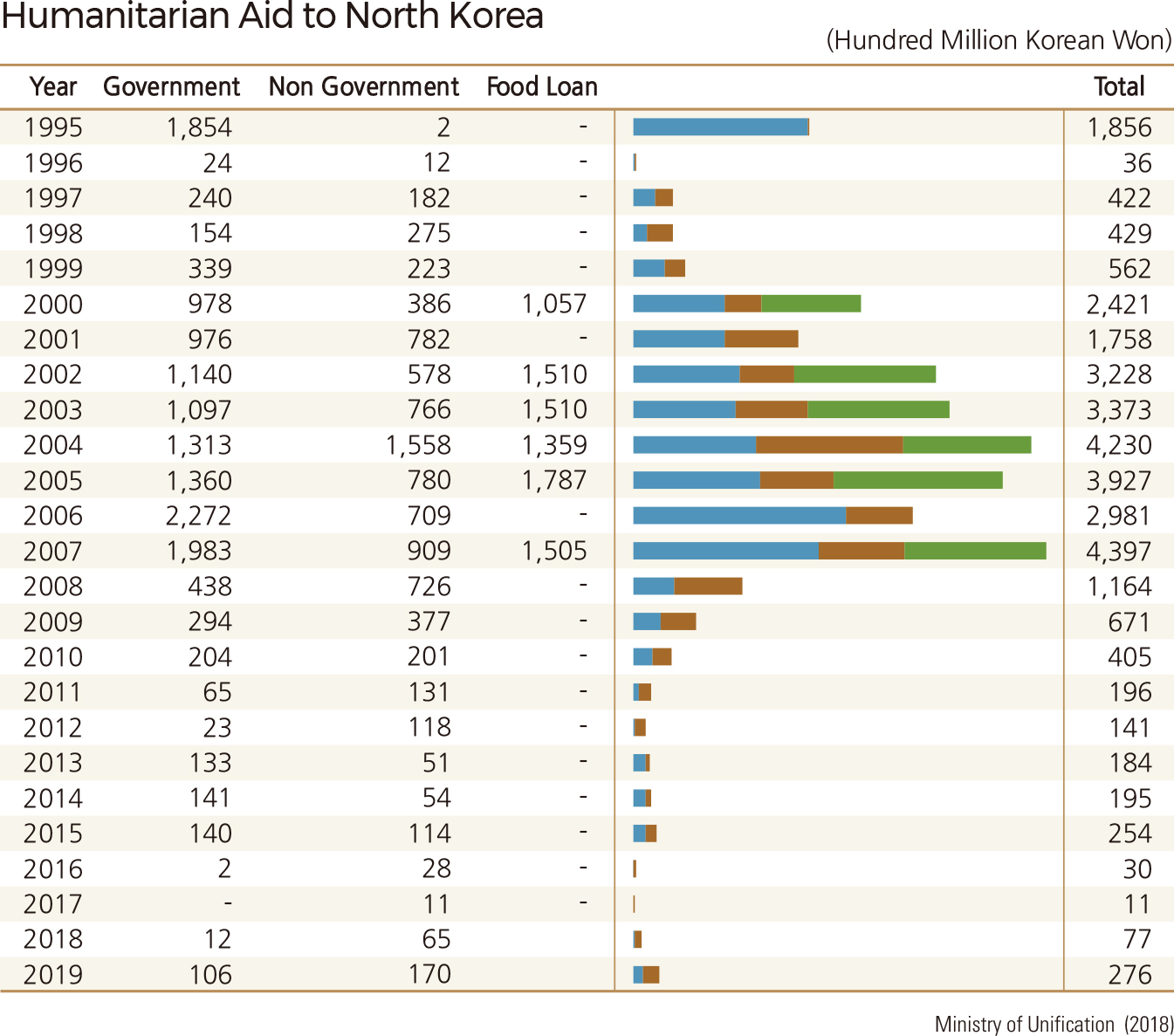Comprehensive Edition 2022
From 1945, when North and South Korea were divided, to the 1960s, exchanges and cooperation between the two were virtually nonexistent. In the early 1970s, the North and South first discussed the possibility of an exchange of goods through their respective Red Cross Societies. On November 8, 1994, the Kim Young-sam administration announced the first round of measures to activate inter-Korean economic cooperation. As the successive Kim Dae-jung administration unveiled the second round of measures and held a summit meeting with the North, inter-Korean economic cooperation entered a new phase.
The progress in inter-Korean economic cooperation has had a positive impact on families separated by the division between North Korea and South Korea. Between 2003 and 2007, when inter-Korean economic exchanges were at their peak, families were able to search for their family members separated from them by the Demarcation Line, communicate with them through letters, and have reunions at governmental and non-governmental levels. As inter-Korean relations cooled in 2008, the separated families’ chances of communicating with their family members significantly decreased.
Since the inter-Korean relationship began to improve in 2018, inter-Korean exchange and cooperation has been actively underway in various realms such as arts, cultures, sports, academic research, and cultural heritage. In February 2018, inter-Korean exchange performances were held at the Pyeongchang Winter Olympics. A joint archaeological excavation of Manwoldae, Gaeseong, was undertaken from October to December 2018. At the 2018 Asian Games, North Korean and South Korean teams marched together under a unified Korean flag and formed coalition teams to compete with other national teams.
Major economic cooperation projects include Geumgangsan Mountain tourism, the inter-Korean railway, road construction, and the Gaeseong Industrial Complex development. A Special Economic Zones policy has been aggressively promoted under the Kim Jong-un regime, and is now expanding across the country. With the enactment of the “Economic Development Zone Act,” North Korea announced 13 economic development districts to attract foreign investment, with Sinuiju being designated as a new special economic zone. In 2014, North Korea designated six additional zones, including Unjong, a cutting-edge technological development zone. Subsequently, in 2015, it added the Mubong Special Zone for International Tourism, followed by the Kyongwon Economic Development Zone and the Kangnam Economic Development Zone. Economic zones specialize in industrial, agricultural, tourism, export processing, or high-technology realms. However, North Korea’s economic policies have not been consistent due to international sanctions imposed as a consequence of nuclear and missile tests. |






